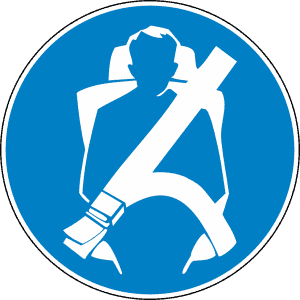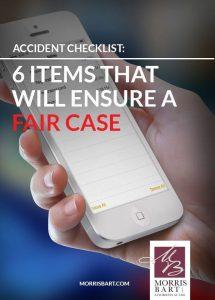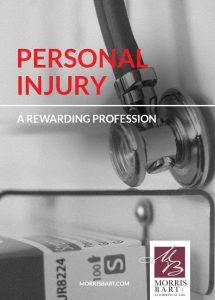
After a serious injury, records can prove crucial. In fact, you may feel as though keeping up with the records from your injury is like a full-time second job! However, having those records on hand may prove critical to your ability to file a personal injury claim and successfully receive the compensation you deserve.
Why Should You Keep Records After an Injury
Following a serious injury, you have plenty of things that you have to deal with. Do you really have to add keeping up with all those records to the list? Those records, however, may be more important than you think.
Records Help Serve as Evidence
When you file an injury claim, you will need to show clear evidence of what injuries you sustained, when you sustained those injuries, and what limitations you have faced as a direct result of those injuries. If you cannot provide those records, you may have a hard time establishing exactly what challenges – including both financial and non-financial – limitations your injuries caused.
Insurance companies will rarely take your word alone. If you cannot produce evidence, you may have a much harder time establishing the compensation you really deserve.
Records Make Calculations Easier
In order to put together a personal injury claim, you will need a reasonable estimate of the losses you have faced as a result of the accident, including your financial losses. If you do not have records of those losses, you may have a much harder time providing exactly what losses you faced–and you may end up inadvertently selling yourself short in your calculations.
Keeping Accurate Records Can Decrease the Time You Spend Managing Your Claim
If you keep accurate records from the beginning, you are much less likely to have to go back and locate those records later. On the other hand, if you do not keep up with your records, you may have a much harder time finding them in the future – especially if it takes months or even years to settle your claim. Effective record-keeping means you can put those records at your fingertips when you need them.
For a free legal consultation, call 800-537-8185
Records You Should Keep After an Injury
Many injuries involve a great deal of paperwork: some of it on your side or given to you by your doctors, employer, and others involved in your accident and recovery; other pieces on the part of other parties. Just how much of it do you need to keep?
Accident Reports
First, make sure you keep track of any reports regarding your accident. After a car accident, that may mean keeping up with witness contact information or the accident report. If you suffered a slip and fall in a store, you might want to keep a copy of the store’s internal accident report. Do not make themistake of getting rid of that paperwork, especially early in your claim. That report can serve as essential evidence of when your accident took place, what led to it, and why you deserve compensation.
Medical Records
A lot of information goes into your medical records following a serious injury. You can request copies of your medical records from your doctors at any time. You can even ask your care providers to provide more commentary and insight regarding your injuries. You may, however, want to keep up with your own copies of many of your records, including injury scans and x-rays, test results, and any exercises required by your physical therapist.
Not only do you need those records for your injury claim, but you may also want them for your own benefit! If necessary, make additional copies of critical paperwork so you can lay hands on it when needed.
Medical Bills
If you pay your medical bills as they come in, it may not occur to you that you need to keep copies of them. In reality, however, keeping accurate copies of your medical bills can make it much easier to calculate the financial losses you have faced after your accident. You may not realize how high your medical bills actually grow on your own. While your lawyer may provide you with an estimate of what medical treatment for a specific accident or injury often costs, your bills may not follow the average, especially if you experienced complications or delays in recovery.
Also, remember that you may receive multiple medical bills for some treatments. For example, if you receive treatment in a hospital emergency room, you may receive a bill from the physician that oversaw your treatment as well as a facility fee from the hospital itself. If you lose track of any of those bills, it can prove much more difficult to calculate those costs later.
Employment Records
Many accidents can interfere substantially with your job. You may have to miss quite a bit of work while you recover from your injuries. You may have to miss further work for physical therapy, follow-up appointments, and even additional procedures needed to treat your injuries.
Dealing with all those challenges can lead to significant income losses. In order to prove how much income you have lost, you may want to keep:
- Check stubs from both before and after the accident
- Statements from your employer about your pre- and post-accident income
- Any correspondence you had with your employer about your absence from work (including emails or text messages)
- Vacation/sick time records
Keeping up with your employment losses can prove just as critical as establishing your medical bills – and even more complex, depending on what your return to work looked like and how long it took.
Contact an Attorney for Help With Your Injury Claim
If you suffered serious injuries in an accident, you may have a lot of records to keep up with and a lot of questions about your rights, including how to move forward with a claim. A personal injury lawyer can help you better decide your next steps. Contact Morris Bart today for more information about your rights.
Questions?Call 800-537-8185
to find a Morris Bart office near you.





